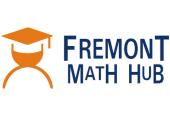In today’s world of mathematics education, there is a growing shift from traditional rote memorization toward conceptual math learning, representing a meaningful transformation in how students approach the subject. Instead of simply memorizing formulas, steps, or procedures, this method encourages learners to truly understand the logic and principles that form the foundation of every mathematical concept. By embracing this approach, students develop a deep math understanding, which empowers them to think critically, analyze problems carefully, and apply mathematical reasoning in real-life scenarios and complex problem-solving situations. This not only strengthens their confidence but also nurtures a genuine appreciation for mathematics as a tool for exploring patterns, making connections, and approaching challenges with clarity and creativity.

What Is Conceptual Math Learning?
Conceptual math learning is all about understanding the “why” behind every mathematical operation and relationship, rather than just memorizing steps. It motivates students to explore the reasoning behind mathematical rules and see how various concepts connect with one another. Unlike traditional teaching methods, which often emphasize procedures and repetitive practice, this approach nurtures a genuine understanding of the material. By focusing on concepts instead of just formulas, students can build a solid foundation that supports problem-solving, logical thinking, and the ability to apply mathematics in different contexts.
The Importance of Deep Math Understanding
Achieving a deep math understanding is essential for students, as it brings numerous benefits that go far beyond performing well on tests.
- Enhanced Problem-Solving Skills: With a strong conceptual foundation, students can approach complex problems strategically, applying mathematical ideas flexibly across different scenarios rather than relying on memorized steps.
- Long-Term Retention: Grasping the core principles of math helps learners retain information for the long term, making it easier to recall and apply knowledge when needed.
- Real-World Application: A deep understanding allows students to connect mathematical concepts to real-life situations, making learning more meaningful, relevant, and engaging.
- Increased Confidence: When students truly understand the reasoning behind math, they feel more confident in their abilities, which reduces anxiety and encourages them to tackle challenging problems with a positive mindset.
In essence, developing a deep math understanding equips students with critical thinking skills, practical application abilities, and the confidence to succeed in mathematics and beyond.
Challenges in Traditional Math Education
Traditional math education often focuses heavily on memorization and repetitive exercises, which can result in surface-level learning. While students may perform adequately on exams, they often struggle to apply the concepts in real-world situations or unfamiliar problems. This method can limit the development of essential skills such as critical thinking and creative problem-solving, both of which are key to achieving a deep math understanding. By prioritizing procedures over comprehension, traditional approaches may prevent students from fully grasping the connections between concepts and hinder their ability to think flexibly about mathematical challenges. Learn more about Mastering Math.

Strategies to Foster Conceptual Math Learning
To foster conceptual math learning, educators can adopt a variety of effective strategies that make math engaging, meaningful, and easier to understand:
1. Encourage Exploration:
Allow students to discover mathematical concepts on their own through guided inquiry and hands-on activities. This helps them understand the reasoning behind each concept rather than just memorizing steps.
2. Use Visual Aids:
Incorporate diagrams, models, and visual tools to make abstract ideas more tangible. Visual representations can clarify complex topics and strengthen conceptual understanding.
3. Promote Discussion:
Create an environment where students can explain their thought processes, ask questions, and consider different approaches. Discussing ideas aloud deepens understanding and encourages collaborative learning.
4. Connect to Real Life:
Show students how mathematical concepts relate to everyday situations. By linking math to the real world, learning becomes more relevant and engaging, reinforcing the purpose behind the concepts.
5. Provide Constructive Feedback:
Offer timely and specific feedback that helps students recognize mistakes and learn from them. This guidance encourages reflection, strengthens understanding, and supports continuous improvement.
How Fremont Math Hub Implements These Strategies
Fremont Math Hub serves as a prime example of applying conceptual math learning through its customized tutoring programs. The center emphasizes building a strong mathematical foundation by aligning lessons with the Fremont Unified School District curriculum, ensuring that each session is both relevant and coherent. Their approach includes:
- Personalized Instruction: Tailoring teaching methods to match each student’s unique learning style and pace, so every learner can grasp concepts fully.
- Interactive Learning: Using hands-on tools, digital resources, and engaging activities to make math more interactive and memorable.
- Continuous Assessment: Conducting regular evaluations to track progress, identify challenges, and provide targeted support where needed.
- Supportive Environment: Creating a positive and encouraging atmosphere that fosters curiosity, confidence, and a genuine love for mathematics.
By focusing on these key areas, Fremont Math Hub ensures that students not only gain a deep math understanding but also develop the critical skills to apply mathematical concepts effectively in real-world situations. Their structured, student-centered approach helps learners move beyond rote memorization and truly embrace the logic and beauty of mathematics.

Conclusion
In conclusion, shifting from rote memorization to conceptual math learning is vital for cultivating a deep math understanding in students. This approach empowers learners to think critically, solve problems with confidence, and apply mathematical concepts across a variety of real-world situations. By focusing on understanding rather than memorization, students gain the skills and mindset needed to approach mathematics creatively and effectively.
Institutions like Fremont Math Hub play a crucial role in making this possible. Through personalized instruction, interactive learning, and a supportive environment, they help students build strong mathematical foundations and develop the ability to apply concepts in meaningful ways. For more information on tailored math tutoring programs, visit Fremont Math Hub.


